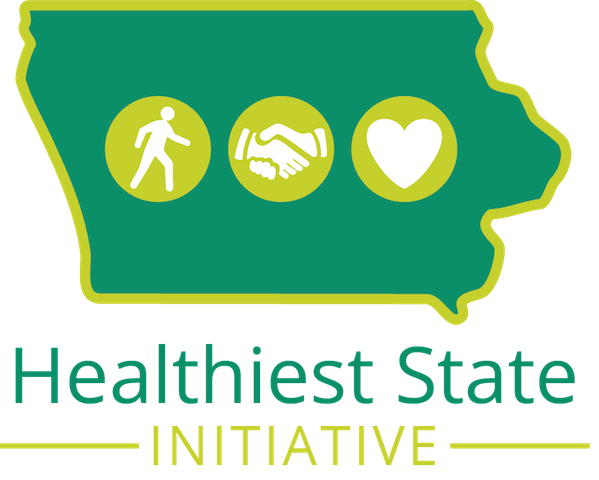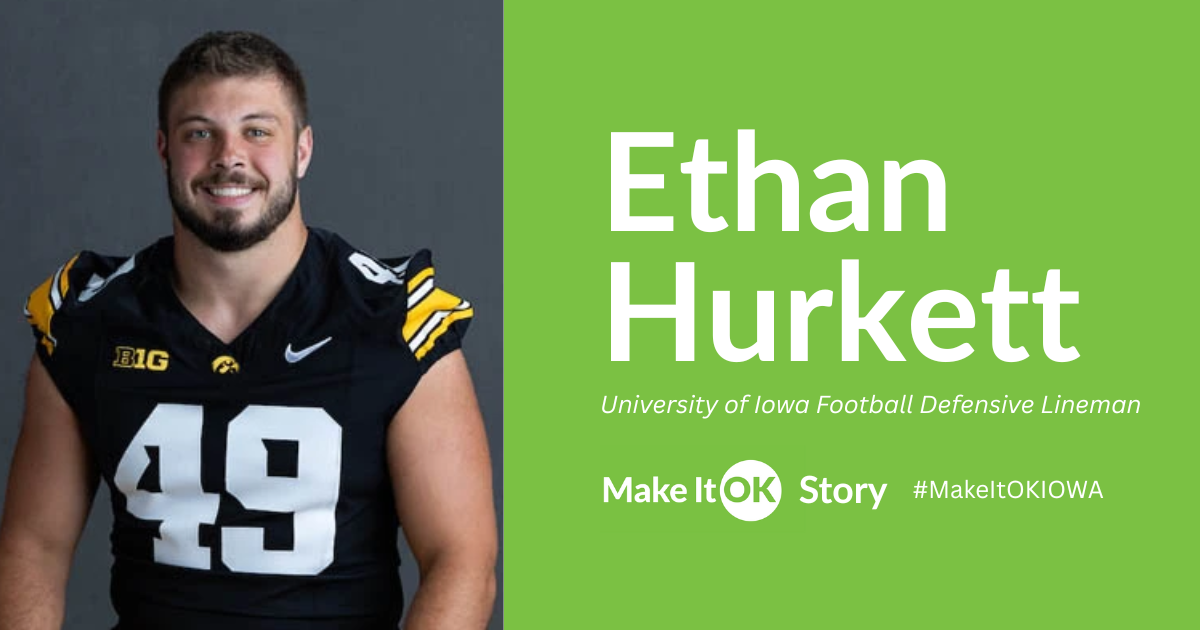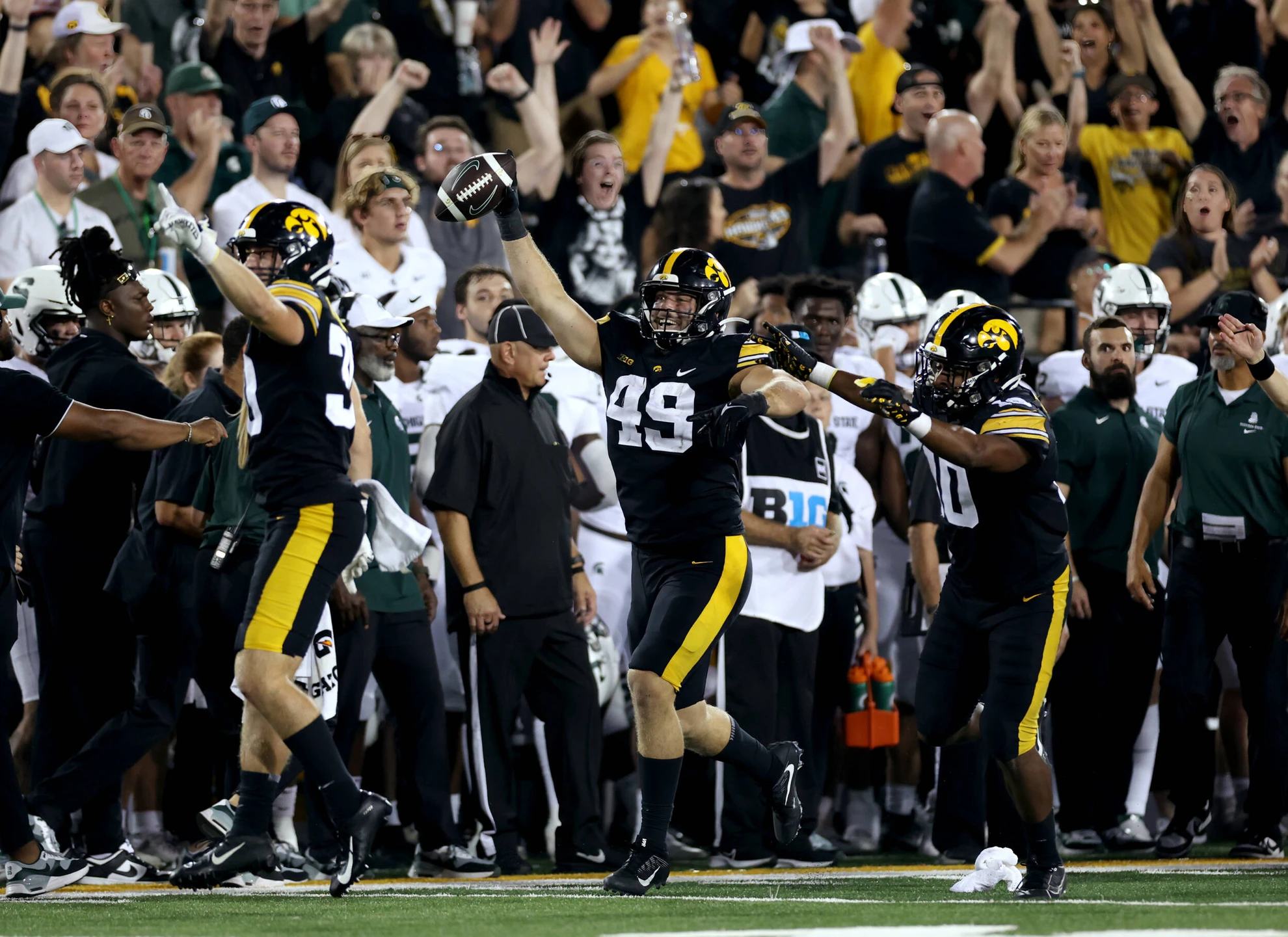Ethan Hurkett’s Story
Ethan Hurkett, a Cedar Rapids native and Xavier High School graduate, is now in his sixth year playing defensive end for the Iowa Hawkeyes. While he has faced the challenges of injuries and the demands of college athletics, his perspective on mental health is shaped less by his own struggles and more by the experiences of his teammates. Ethan has taken on a role of support, encouraging others to prioritize their well-being. Today, he hopes to help normalize seeking help and shift the narrative—showing that speaking openly about mental health is a sign of strength, not weakness.
Ethan’s first few years of college may sound familiar to many. “In my first two or three years I felt like I was thinking about a million things at once.” Balancing the demands of school with the responsibilities of football created plenty of stress. Though he admits to the usual ups and downs, Ethan says mental illness hasn’t played a major role in his own life. His toughest challenge came early on, when injuries took entire seasons away from him.
“I was hurt in my first two years at Iowa with a foot injury, and I tore my knee in my second year. That was a tough time mentally, watching everyone else get to play and do what they love,” he said. “It can be isolating for sure—you just want to be out there with the guys.”
He remembers the 2021 matchup with Penn State, where Iowa came out on top 23–20. “I remember the Penn State game where we beat them in Kinnick and I remember being so happy for the guys, but being like, shoot, I really wish I could be there to experience it with them. I was pretty sad about that.”
Being sidelined as a young player was bittersweet, but Ethan also learned valuable lessons during his recovery. His teammates were there when he needed them, reminding him that he could lean on those around him. More than anything, he says, the experience taught him patience.
“This all really taught me the virtue of patience because before then I really hadn’t been challenged with adversity at all. Throughout high school I was pretty healthy and always ‘the guy,’ so I got to college and hit some bumps in the road. That taught me a lot.”
Finding strength in his support system also helped lighten the load. “The things that helped me get through it are my family and my faith,” Ethan said. “I always think there’s a bigger plan, and I leaned into that while I weathered the storm.”
Although he longed to be on the field, Ethan says those stretches of isolation never developed into a long-term mental health struggle. Instead, they gave him greater empathy for teammates who do battle mental illness.
“Playing football, there are a lot of ups and downs, a lot of adversity you go through,” he said. “I have seen a lot of guys struggle, and I just try to be there for them.”
Now, as someone tough enough to line up in the trenches every Saturday, Ethan wants to help break the stigma—especially for men who often feel pressure to stay silent.
“Being a guy, it’s harder to share what you’re thinking, but don’t be afraid to get the help you need. There’s no shame in it. It’s the same thing as if something was going wrong physically—people understand.”
He also emphasized the importance of reaching out to loved ones, even just to ask how they’re doing, and noted how simple things—like getting exercise—can have a powerful impact on mental health. He recalled advice his parents gave him before college, words that still stick with him today:
“No matter how bad things get, it’s never so bad that it is irreversible. Things are never hopeless.”
Whether it’s a walk around the neighborhood, spending time with a friend, or telling a teammate you’re struggling, hope can come from many places—and even a little hope can go a long way.






